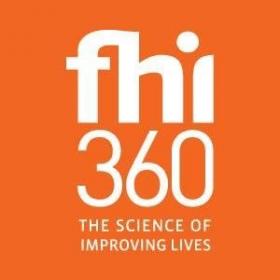The Diagnostics Advisor (DA) will support implementation of diagnostics systems capacity building work for the USAID Infectious Diseases Detection and Surveillance (IDDS) project that serves the Global Health Security Agenda, TB programs and other related initiatives. IDDS supports select governments and their relevant ministries in the strengthening of their human and animal health diagnostic systems for infectious diseases, TB and antimicrobial resistance (AMR). The work will focus primarily on public health systems but may also include private health and other non-governmental diagnostic facilities (laboratories and point-of-care facilities). The position will be based in the prime’s Rockville, MD office, and will involve frequent international travel. Technical responsibilities include working with the Diagnostics Lead, Senior Diagnostics Advisor, ICF (project prime), local IDDS staff, and USAID to implement agreed strategies to enhance diagnostic networks (both human and animal health and point-of-care facilities) in project countries as well as the broader surveillance systems.
The DA provides technical support to the design, implementation and monitoring of technical strategies to strengthen diagnostic networks that provide comprehensive coverage and universal access to diagnostic services. This will include diagnostic network and facilities assessments, capacity building initiatives of both human and animal diagnostic networks, and implementation of strategies, programs or tools to support diagnostic network capacity building. Specifically:
- Supports the development and implementation of technical assistance, diagnostic network and facility strengthening and quality improvement interventions in line with joint external evaluation (JEE) reports, country national action and strategic plans (infectious diseases and TB), and other assessment reports.
- Supports the development of country-specific workplans and budgets for diagnostic network activities aligned with national action plans and local stakeholder improvement goals.
- Supports the implementation of diagnostic network enhancement activities in countries which may include capacity building activities for core diagnostic components such as specimen referral mechanisms, quality management systems, supply chain, management information systems, diagnostic SOPs and tools, qualified workforce, expansion of point-of-care diagnostic service points, and biosafety and biosecurity.
- Supports reporting of diagnostic network strengthening activities.
- In close collaboration with IDDS staff and diagnostic network leaders supports the implementation and monitoring of network enhancement activities as per approved workplans.
- Provides technical support based upon expertise with implementation of diagnostic systems strengthening, methods and strategies, current practice, and established diagnostic and operational standards while also being locally relevant and sustainable.
- Supports the review (as needed) and implementation of diagnostic algorithms in line with latest international guidelines.
- Builds capacity in country-level, regional or global diagnostic staff.
- Supports the development and implementation of strategies, workplans and quality improvement programs for diagnostic networks and facilities supported by IDDS with reference to accepted standards and requirements.
- In close collaboration with IDDS surveillance staff, provides technical assistance to diagnostic networks to strengthen the accuracy and timeliness of reporting into national reporting databases such as DHIS2.
- Encourages and assists laboratories with preparing for and seeking accreditation through locally, regionally, nationally, and internationally accepted accreditation agencies, contingent on country demand.
- Shares new knowledge/evidence and best practices with the project team, partners and host countries.
- Will be required to coordinate and work with a diverse group of organizations, such as; the Ministry of Health and Agriculture, diagnostic leaders and facility staff, several international and national development partner organizations, and the donor.
- Serve as the technical backstop to an assigned set of countries, ensuring strong progress of activities, and coordination with HQ-based resources.
- Serve as part of an overall technical team on the IDDS project, working closely with IDDS advisors in complementary technical areas to bring strong integrated technical approaches to country programs.
- At least five years of experience (combination of long-term in-country placement and short term technical assistance) in the oversight and implementation of diagnostics strengthening in developing countries in a combination of Africa and Asia.
- Proven knowledge and experience in the diagnosis of infectious diseases (including TB) and anti-microbial resistance including specific hands-on clinical diagnostics experience.
- Competent in current developments in the diagnosis of infectious diseases including point-of-care and molecular methods.
- Knowledge with strengthening laboratories to achieve international quality standards including against ISO 15189 and/or SLMTA/SLIPTA or in-country standards.
- A demonstrated ability to work with multiple partners on collaborative projects;
- Experience implementing diagnostic network capacity building.
Supervision Given/Received:
- May supervise FHI 360 IDDS staff members in multiple countries (including in Asia and Africa).
Travel Requirements:
- At least 35%
Typical Physical Demands:
- Typical office environment.
- Ability to sit and stand for extended periods of time.
- Ability to lift 5-50 lbs.
Technology to be Used:
- Personal Computer, Microsoft Office (i.e. Word, Excel, PowerPoint, etc.), e-mail, telephone, printer, calculator, copier, cell phones, PDAs and other hand held devices.
FHI 360 fosters the strength and health of its workforce through a competitive benefits package, professional development and policies and programs that support healthy work/life balance. Join our global workforce to make a positive difference for others — and yourself.
